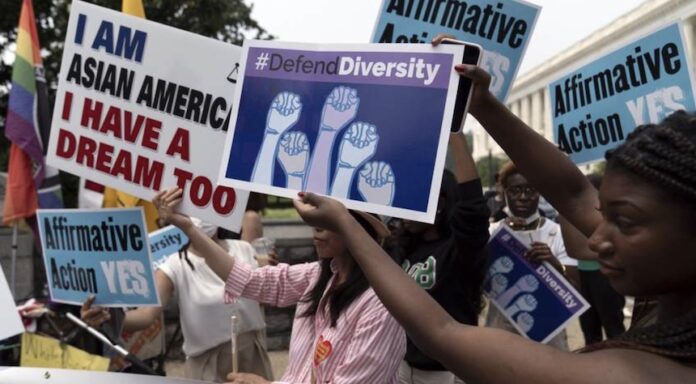Although the U.S. Supreme Court has ruled against “affirmative actions” that are based on race, colleges and universities will still continue to make admissions decisions based on race. One New York College is asking applicants to describe the “impact of the SCOTUS decision on them.”
Sarah Lawrence College now offers applicants the option of writing an essay to explain how the Supreme Court’s ruling against affirmative actions (which factor race into admissions decision) “impacted” their goals for college. Kevin McKenna, an admissions counselor at Sarah Lawrence College, claimed in a letter to Campus Reform, “Our concern is how a student can craft a compelling narrative or statement on a socially important topic — not what ideology they identify with.”

McKenna may think he’s sincere but his claim is highly doubtful in light of radical leftism that has taken over most academia, and not to mention the “diversity” and “inclusivity” message from his college.
Three options are provided for the Common Application Essay. The third option is:
The author of the syllabus for the 2023 majority ruling of the Supreme Court, Chief Justice John Roberts notes that: “Nothing prevents universities from taking into consideration an applicant’s discussion about how race has affected their life as long as it is tied to a particular quality of character and/or unique ability the applicant can bring to the university.” Describe how you think the Court’s judgment might impact, influence, or affect your goals of a college education.

What the hell does that mean?
McKenna, in comments for “Campus Reform,” defended the topic. “Over the last few years, we have asked students to reflect upon what diversity and inclusiveness means to them when they think about their college years,” McKenna stated. Ah, the days of woke buzzwords that had nothing to do with higher education. Sarah Lawrence found a way to work around the Supreme Court’s decision.

McKenna said, “In light of the Supreme Court’s decision that changed the landscape for how colleges and Universities talk about race and ethnicity and access to higher educational, we thought we should update our prompt.” As our other optional prompts highlight aspects of our learning communities like our open curricula and our model of faculty-mentored research and rigorous student work, we thought this new prompt would reinforce two key characteristics of our community. We ask students to tackle challenging issues with intellectual rigor, and we believe that the national conversation on race is important and should be a prominent topic in higher education.
Sorry, but “race” shouldn’t be a major topic in higher education. While it’s fine to talk about the history of racism and racist individuals and actions in history classes, American colleges should stop promoting “conversations about race”. This fixation with skin color fuels division and prejudice in America.










